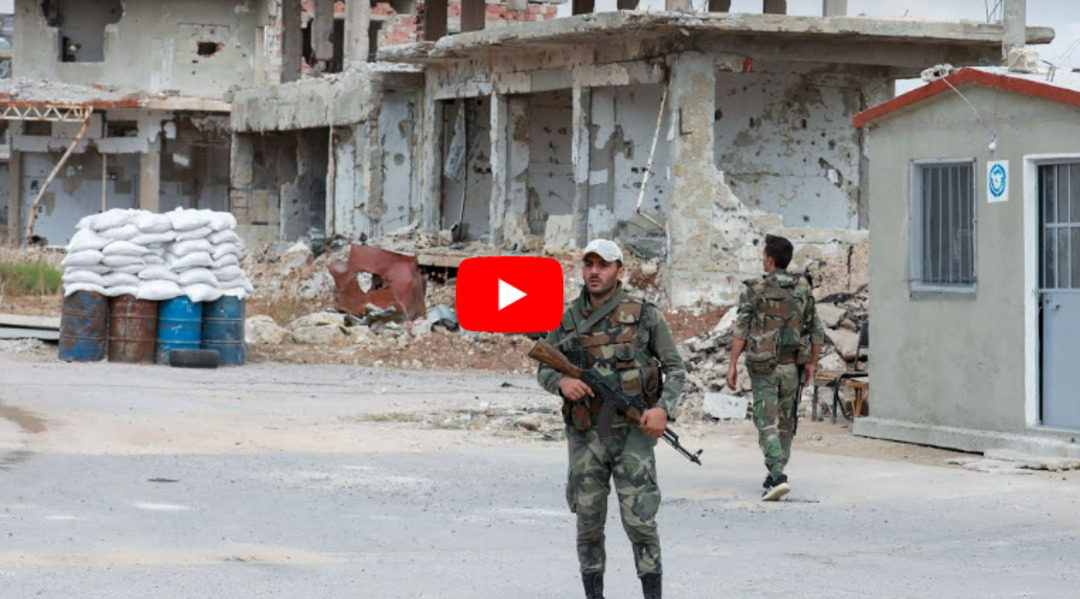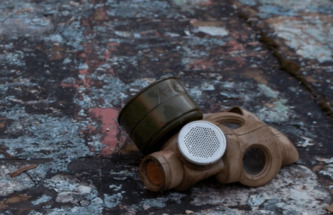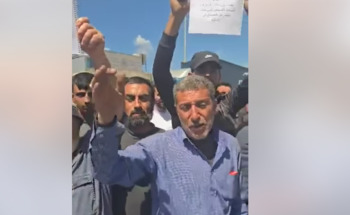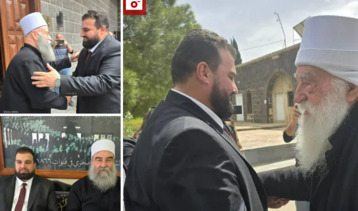-
Syria's Continued Violations of International Law: A Humanitarian Crisis Unfolds

On Wednesday, "Human Rights Watch" issued a report highlighting that the Syrian regime has violated the International Court of Justice's order from a year ago, which mandated the regime to take all necessary measures to prevent acts of torture throughout the country.
The court issued provisional measures on November 16, 2023, in a case brought by the Netherlands and Canada against the regime, claiming violations of the "Convention Against Torture."
Human Rights Watch reaffirmed that Syrians remain at risk of enforced disappearances, deaths under torture, and horrific detention conditions. One year after the International Court's order, Human Rights Watch published an article focusing on the efforts of Syrians to achieve accountability for ongoing violations.
Bilqis Jarrar, the assistant director of the International Justice Program at Human Rights Watch, stated, "Syrian officials are still arresting people in detention centers notorious for torture." Despite the challenges, the determination of Syrian families and survivors to fight for justice persists—whether through the highest court in the world or other means.
The case, filed in June 2023, outlines the unlawful treatment of detainees, inhumane detention conditions, enforced disappearances, sexual violence and gender-based violence, violence against children, and the use of chemical weapons as evidence that the Syrian government is violating the Convention Against Torture. The case is not a criminal prosecution against individuals, but rather seeks a legal delineation of state responsibility for torture.
Human Rights Watch and other human rights organizations, along with a UN-ordered investigation, indicate that the Syrian regime continues to violate these principles, defying the international court's order.
The Human Rights Watch report references a study by the "Syrian Network for Human Rights" from August 2024, which documented at least 43 deaths attributable to torture since the International Court's order was issued. In its latest reports covering the period from late 2023 to July 2024, the UN Independent International Commission of Inquiry on the Syrian Arab Republic noted that the Syrian government continues to "commit acts of torture and ill-treatment against individuals detained by the state, including practices that lead to deaths during detention."
Separately, the UN Special Rapporteur on torture and other cruel, inhuman, or degrading treatment or punishment stated in July that "available information suggests that torture continues to be widely practiced (...) in detention centers run by the Syrian government." The UN expert described the Syrian regime's response to requests for information regarding ongoing violations and measures taken to implement the court's order as "inadequate," since it did not specifically respond to any of the claims.
The International Court of Justice directed the Syrian regime to take measures to ensure the preservation of any evidence related to torture or other prohibited acts. However, Syrian NGOs and the UN investigative committee have expressed concern that the regime's recent legislative move to dissolve military field courts in the country might be an attempt to eliminate or conceal evidence of a long list of violations, including torture.
Canada and the Netherlands have until February 3, 2025, to submit their main written arguments in their case against the Syrian regime. The temporary measures ordered by the court do not prejudge the merits of the allegations that the Syrian regime has violated the provisions of the Convention Against Torture.
The Syrian regime has consistently denied allegations of torture, despite years of evidence reported by UN bodies and independent NGOs, including Human Rights Watch, which have found that crimes occurring in Syrian detention facilities constitute crimes against humanity.
The report also noted that while several European governments have claimed that parts of Syria are safe for the return of refugees, research conducted by Human Rights Watch and others indicates otherwise.
Human Rights Watch emphasized that countries hosting Syrian refugees must immediately cease any forced repatriations or processes that do not respect due process or any plan to facilitate or incentivize such returns.
They further asserted that immigration policies pressuring Syrians to return home contradict court rulings in EU member states, which have found the Syrian regime responsible for torture and other violations that constitute crimes against humanity and war crimes. These cases are made possible by laws that recognize universal jurisdiction over some of the most serious crimes under international law.
You May Also Like
Popular Posts
Caricature
BENEFIT AGM approves 10%...
- March 27, 2025
BENEFIT, the Kingdom’s innovator and leading company in Fintech and electronic financial transactions service, held its Annual General Meeting (AGM) at the company’s headquarters in the Seef District.
During the meeting, shareholders approved all items listed on the agenda, including the ratification of the minutes of the previous AGM held on 26 March 2024. The session reviewed and approved the Board’s Annual Report on the company’s activities and financial performance for the fiscal year ended 31 December 2024, and the shareholders expressed their satisfaction with the company’s operational and financial results during the reporting period.
The meeting also reviewed the Independent External Auditor’s Report on the company’s consolidated financial statements for the year ended 31 December 2024. Subsequently, the shareholders approved the audited financial statements for the fiscal year. Based on the Board’s recommendation, the shareholders approved the distribution of a cash dividend equivalent to 10% of the paid-up share capital.
Furthermore, the shareholders endorsed the allocation of a total amount of BD 172,500 as remuneration to the members of the Board for the year ended 31 December 2024, subject to prior clearance by related authorities.
The extension of the current composition of the Board was approved, which includes ten members and one CBB observer, for a further six-month term, expiring in September 2025, pending no objection from the CBB.
The meeting reviewed and approved the Corporate Governance Report for 2024, which affirmed the company’s full compliance with the corporate governance directives issued by the CBB and other applicable regulatory frameworks. The AGM absolved the Board Members of liability for any of their actions during the year ending on 31st December 2024, in accordance with the Commercial Companies Law.
In alignment with regulatory requirements, the session approved the reappointment of Ernst & Young (EY) as the company’s External Auditors for the fiscal year 2025, covering both the parent company and its subsidiaries—Sinnad and Bahrain FinTech Bay. The Board was authorised to determine the external auditors’ professional fees, subject to approval from the CBB, and the meeting concluded with a discussion of any additional issues as per Article (207) of the Commercial Companies Law.
Speaking on the company’s performance, Mr. Mohamed Al Bastaki, Chairman BENEFIT , stated: “In terms of the financial results for 2024, I am pleased to say that the year gone by has also been proved to be a success in delivering tangible results. Growth rate for 2024 was 19 per cent. Revenue for the year was BD 17 M (US$ 45.3 Million) and net profit was 2 Million ($ 5.3 Million).
Mr. Al Bastaki also announced that the Board had formally adopted a new three-year strategic roadmap to commence in 2025. The strategy encompasses a phased international expansion, optimisation of internal operations, enhanced revenue diversification, long-term sustainability initiatives, and the advancement of innovation and digital transformation initiatives across all service lines.
“I extend my sincere appreciation to the CBB for its continued support of BENEFIT and its pivotal role in fostering a stable and progressive regulatory environment for the Kingdom’s banking and financial sector—an environment that has significantly reinforced Bahrain’s standing as a leading financial hub in the region,” said Mr. Al Bastaki. “I would also like to thank our partner banks and valued customers for their trust, and our shareholders for their ongoing encouragement. The achievements of 2024 set a strong precedent, and I am confident they will serve as a foundation for yet another successful and impactful year ahead.”
Chief Executive of BENEFIT; Mr. Abdulwahed AlJanahi commented, “The year 2024 represented another pivotal chapter in BENEFIT ’s evolution. We achieved substantial progress in advancing our digital strategy across multiple sectors, while reinforcing our long-term commitment to the development of Bahrain’s financial services and payments landscape. Throughout the year, we remained firmly aligned with our objective of delivering measurable value to our shareholders, strategic partners, and customers. At the same time, we continued to play an active role in enabling Bahrain’s digital economy by introducing innovative solutions and service enhancements that directly address market needs and future opportunities.”
Mr. AlJanahi affirmed that BENEFIT has successfully developed a robust and well-integrated payment network that connects individuals and businesses across Bahrain, accelerating the adoption of emerging technologies in the banking and financial services sector and reinforcing Bahrain’s position as a growing fintech hub, and added, “Our achievements of the past year reflect a long-term vision to establish a resilient electronic payment infrastructure that supports the Kingdom’s digital economy. Key developments in 2024 included the implementation of central authentication for open banking via BENEFIT Pay”
Mr. AlJanahi concluded by thanking the Board for its strategic direction, the company’s staff for their continued dedication, and the Central Bank of Bahrain, member banks, and shareholders for their valuable partnership and confidence in the company’s long-term vision.
opinion
Report
ads
Newsletter
Subscribe to our mailing list to get the new updates!






















